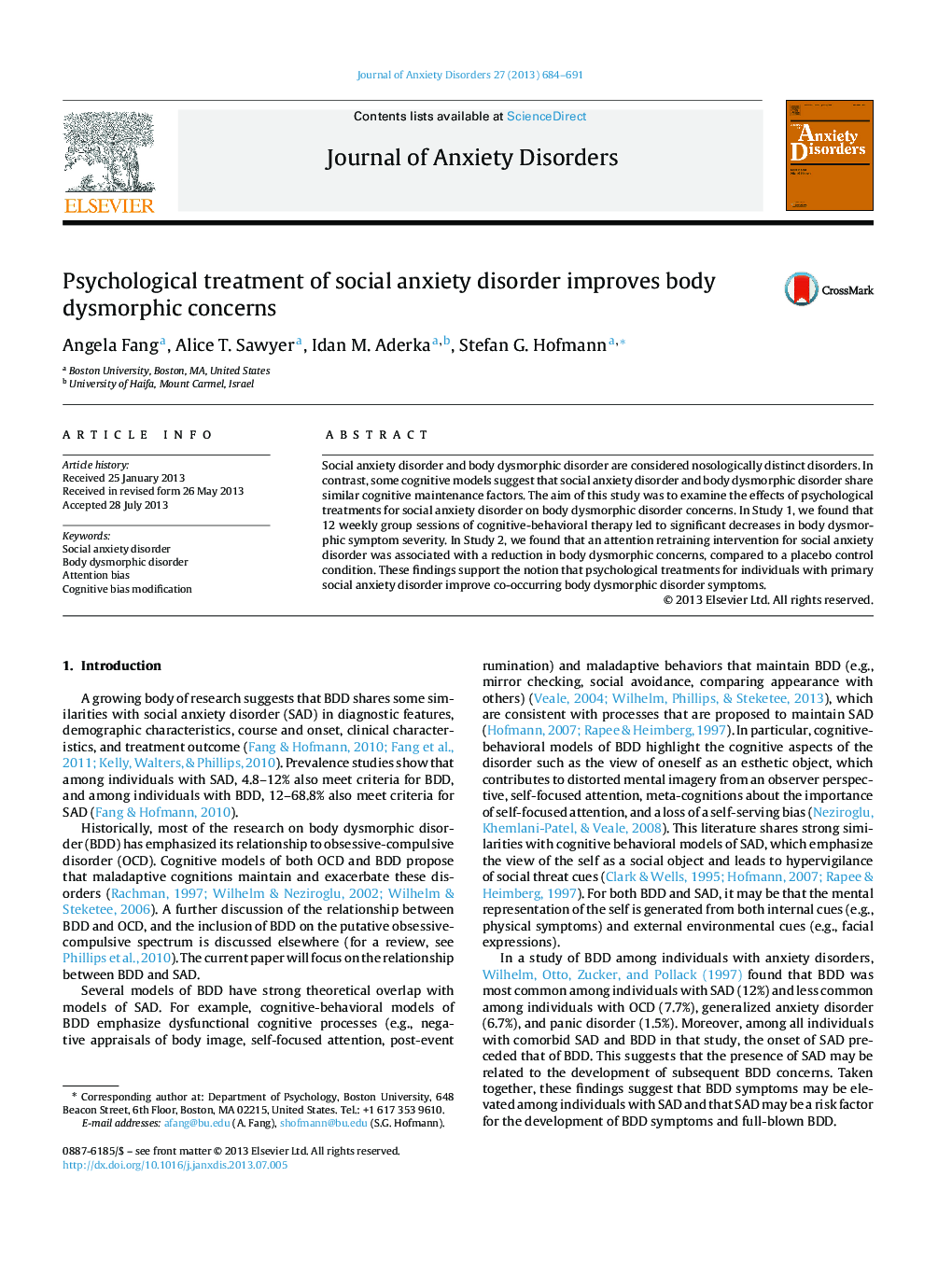| Article ID | Journal | Published Year | Pages | File Type |
|---|---|---|---|---|
| 909394 | Journal of Anxiety Disorders | 2013 | 8 Pages |
•Cognitive-behavioral therapy for social anxiety improves body dysmorphic concerns.•Attention retraining with social stimuli improves body dysmorphic concerns.•Attention bias change scores were correlated with body dysmorphic change scores.
Social anxiety disorder and body dysmorphic disorder are considered nosologically distinct disorders. In contrast, some cognitive models suggest that social anxiety disorder and body dysmorphic disorder share similar cognitive maintenance factors. The aim of this study was to examine the effects of psychological treatments for social anxiety disorder on body dysmorphic disorder concerns. In Study 1, we found that 12 weekly group sessions of cognitive-behavioral therapy led to significant decreases in body dysmorphic symptom severity. In Study 2, we found that an attention retraining intervention for social anxiety disorder was associated with a reduction in body dysmorphic concerns, compared to a placebo control condition. These findings support the notion that psychological treatments for individuals with primary social anxiety disorder improve co-occurring body dysmorphic disorder symptoms.
